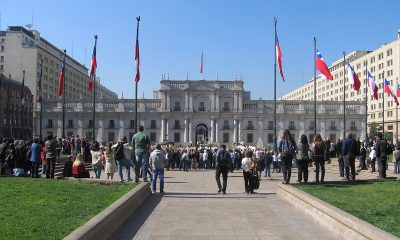South America
More than 180000 people participate in Chilean capital’s Pride march
Flooding from heavy rains prompted organizers to delay event
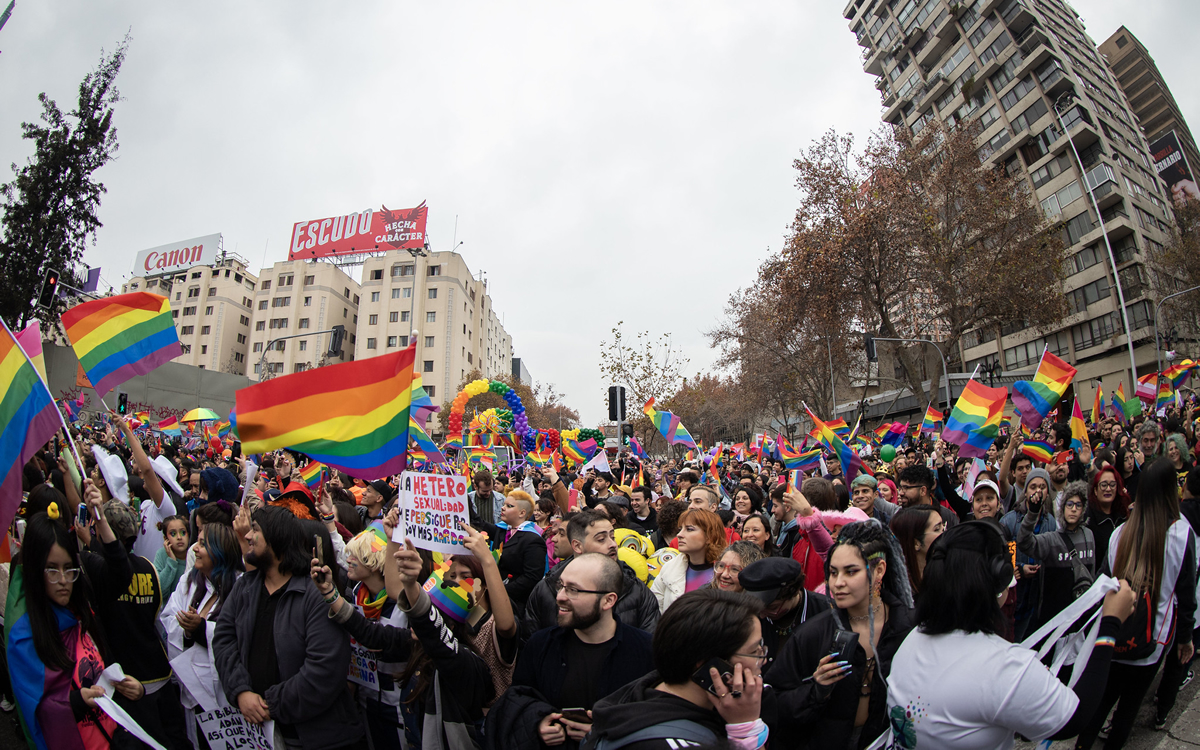
The Chilean capital’s annual Pride march took place on June 25 after organizers postponed them because of heavy rains that authorities have described as the worst in 30 years.
The weather front affected central and southern areas of Chile and caused floods that have affected a large part of the population. The march, however, was unexpectedly well-attended.
More than 180,000 people participated in the march the Movement for Homosexual Integration and Liberation organized.
“We are very happy with this unexpected reception,” said Movilh spokesperson Javiera Zúñiga. “While it is true that Pride marches have always been massive, we expected a smaller turnout than in previous years because this time we had to postpone the parade for weather reasons. However, the opposite happened, since Pride 2023 became the most massive (one) that has been convened so far.”
Eleanor Berkenblit, a 21-year-old American woman from Sharon, Mass., who is studying in Chile, participated in a Pride parade for the first time in her life.
“I really enjoyed the march,” she told the Washington Blade. “I felt proud to be surrounded by people who looked like me, all dressed in colors with their flags and shouts of happiness. I was very excited to march, to be in community and to read the handwritten signs.”
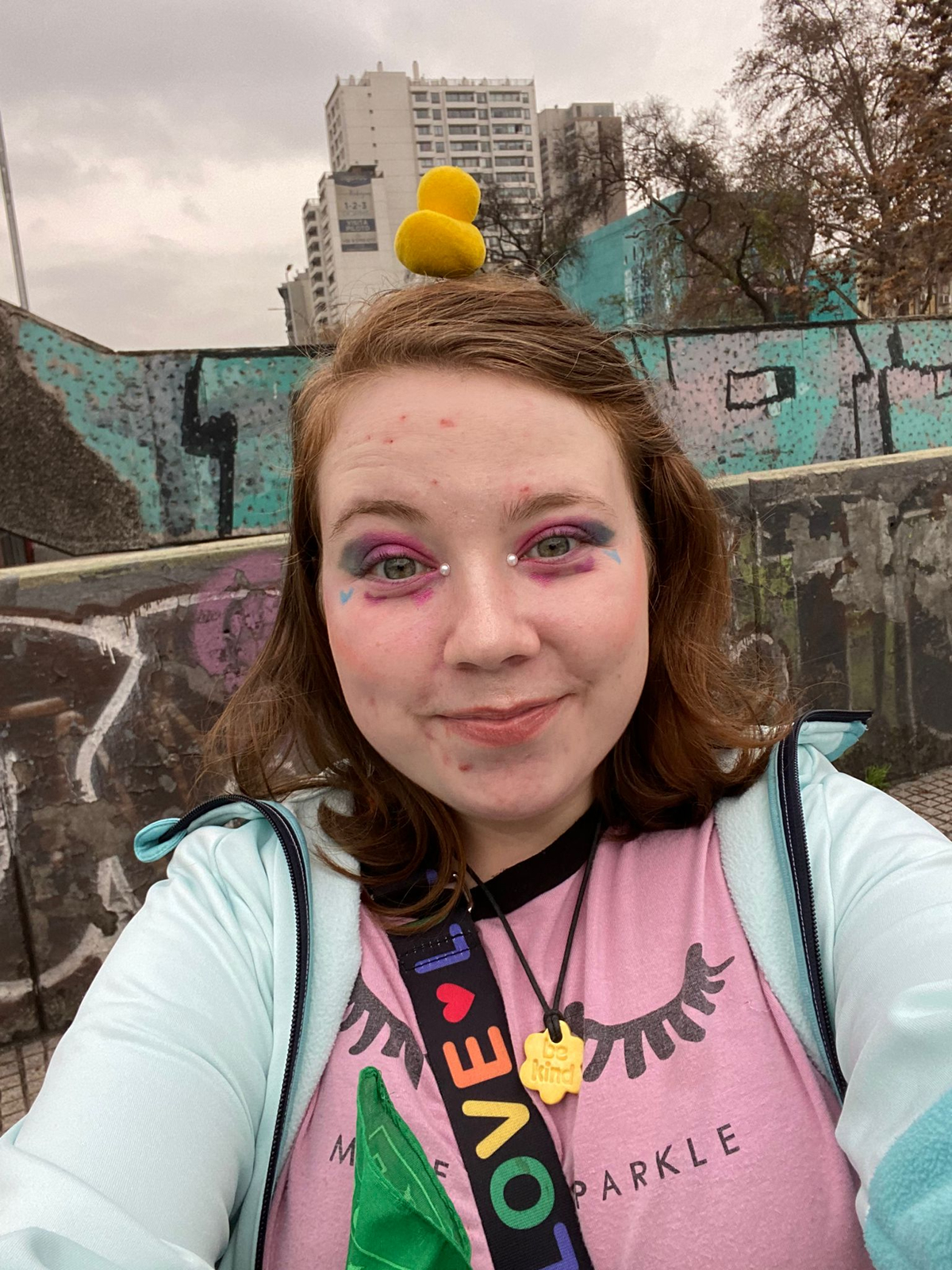
March participants demanded Congress reform the country’s anti-discrimination law, known as the Zamudio law, and asked President Gabriel Boric’s government to support the creation of an institution that promotes and defends queer rights. They also demanded an end to violence against LGBTQ and intersex people in Chile, which has been on the rise over the last year.
An American tourist was recently the victim of a hate-motivated attack in Puerto Varas, a city in southern Chile that is roughly 630 miles south of Santiago.
“I was attacked in Puerto Varas at gunpoint between 8 and 9 a.m. on June 18 on the train tracks near the Bellavista crossing, in the vicinity of Phillipi Park, by a guy I met on a dating app,” said the man on TikTok after saying the person who attacked him identified himself as Benjamin.
“I took the gun away from him, but he took it back and hit me in the face (…) definitely (the aggressor) has some wounds on the back of the head, as I was able to inflict some of that during my struggle. I have reported all this to carabineros (the Chilean police),” he added.
Movilh, after speaking with the tourist and expressing its solidarity with him, sent his details to the U.S. Embassy in Santiago in order for them to provide further guidance and follow up with the investigations.
“Many people believe that after the approval of equal marriage and homoparental adoption, homo/transphobia ceased. However, they are wrong. In the last year, hate crimes have doubled,” said Ramón Gómez, Movilh’s human rights officer, in a speech during the Santiago Pride march.
The organizers said the large turnout “surprised” them, and said that it surpassed last year’s march, despite the cold and gray day in Santiago.
Several ambassadors participated in the march. Among them was Australian Ambassador to Chile Todd Mercer, who expressed his country’s commitment to the LGBTQ and intersex community. Ambassadors from Argentina, Denmark, the U.S., Finland, Ireland and Norway, among others, also attended.
Some parties within the governing coalition did not participate.
Fundación Iguales Executive Director María José Cumplido noted her disagreements with Boric’s government.
“We see with real concern that in more than a year of the current government we have not seen concrete advances in the rights of sexual and gender diversity in Chile,” said Cumplido. “Although we have had a good relationship with the Ministers of Justice and Foreign Affairs, there is a lack of an official interlocutor in these matters that we believe should be the Minister of Women and Gender Equality, who has been somewhat distant in the matter.”
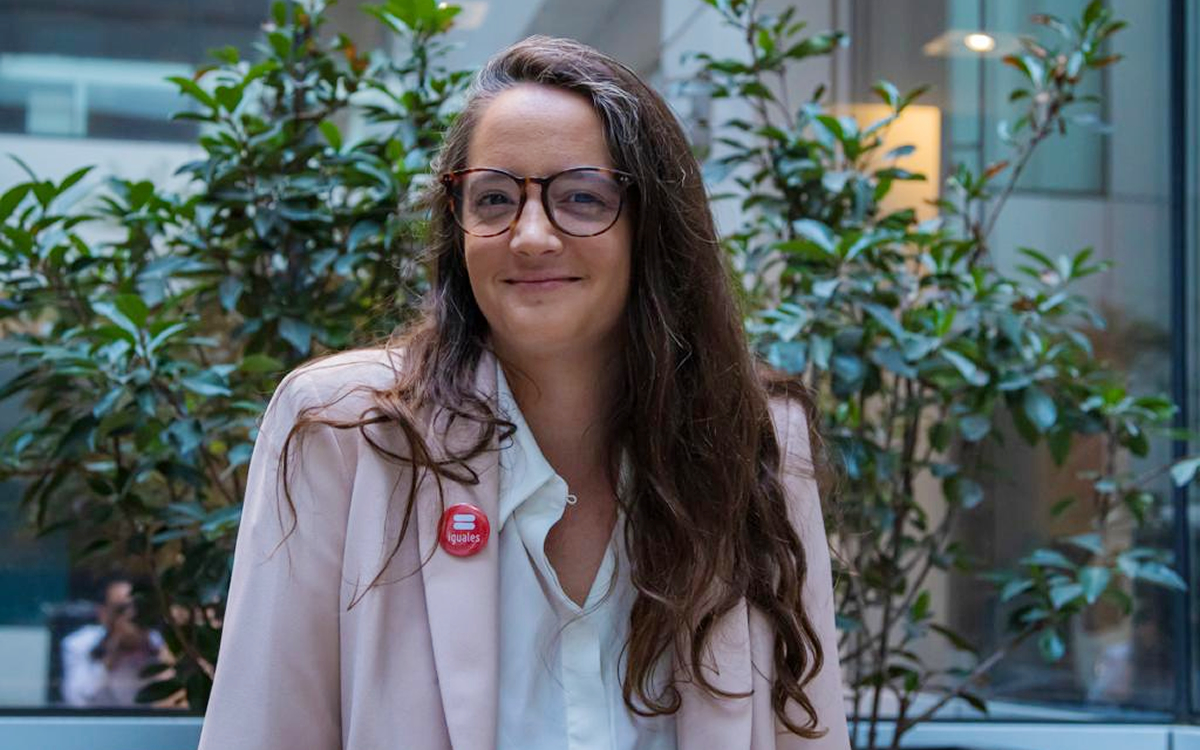
Cumplido indicated her organization feels that “in addition to the reform of the Anti-Discrimination Law, we believe that the creation of an institutional framework that is housed in the Undersecretary of Human Rights is urgent, since the country needs to have an entity that is capable of preventing all types of discrimination in a transversal manner, not only that directed at LGBTI+ people, generating public policies that move towards the eradication of all types of violence.”
“Another of our focuses is to give immediate urgency to the José Matías Law, which addresses bullying and discrimination against students based on their sexual orientation and/or gender identity. We see with concern the rising figures of violence in schools, but if we zoom in on that, the attacks against trans students are becoming more frequent and that hurts us deeply and drives us to continue advocating for solutions,” added Cumplido.
Chileans on May 4 returned to the polls to vote for their representatives to the Constitutional Council, the new institutional body in charge of writing a new constitution. The Republican Party swept to victory in most of the country, winning a majority within the deliberative body.
“Today we are concerned about the position that the Republican Party may have regarding nondiscrimination in the drafting of the final text of the constitution,” Cumplido told the Blade.
Fundación Iguales and Movilh support amendments that would guarantee nondiscrimination in the proposed constitution that voters will consider at the end of the year.
South America
Argentina government dismisses transgender public sector employees
Country’s Trans Labor Quota Law enacted in 2021

Protests have broken out across Argentina in recent weeks after the dismissal of transgender people from their government jobs.
President Javier Milei’s action is in stark contract with the progress seen in 2023, where the government’s hiring of trans people increased by 900 percent within the framework of the Trans Labor Quota Law that had been in place since 2021.
Among those affected is Sofia Diaz, a “survivor” who shared her testimony with the Washington Blade hours after she traveled from Chaco Province to Buenos Aires to protest her dismissal.
Presentes, an LGBTQ news agency, reported the government dismissed more than 85 trans employees in less than two weeks.
Diaz, 49, holds a degree in combined arts. She joined the National Social Security Administration (ANSES) in 2022 under the Trans Labor Inclusion Law. The layoffs began in January and left many people feeling uncertain and anguished. It was her turn a few days ago.
Diaz in an interview recounted how the situation became progressively more complicated, with difficulties in accessing information about her employment status and the eventual confirmation of dismissals through WhatsApp messages. This government action, according to Diaz, violates the law.
“We were on a Friday, I think on March 24, in the office and we have a WhatsApp group of other colleagues from all over Argentina who entered through the trans labor quota and they tell us if we can get our pay stubs on the intranet,” Diaz recalled. “So, I tried to enter, I could not, I talked to two other colleagues and they told me no, they could not, and so we went to another person. He couldn’t either.”
“Some people told us that it could be a system error. Well, we were never calm, let’s say not how this issue of installing fear and the perversion with which they do it ends,” she added. “This sadism of … inflicting pain and speculating with your misfortune and so on … is something that characterizes Javier Milei’s government.”
Diaz recalled a list of those dismissed from the agency began to circulate from the union in the afternoon. A colleague passed it on to her, “and well, unfortunately I was also on that list.”
“At that moment the whole weekend went by with anguish, crying, and talking with other colleagues from other places, not only trans, but everyone, everyone and everyone,” she said. “On Monday when we went to try to enter, we could not enter with the biometric, which is the thumb we had to use every morning to enter.”
Despite the difficult moment through which she is going, the trans activist stressed to the Blade that she will continue protesting and will even sue the government because her dismissal is illegal and “violates the constitution itself.”
The LGBTQ community and its allies have mobilized and organized demonstrations, highlighting the importance of defending the rights won and fighting against discrimination and exclusion. Diaz emphasized the fight is not only for the people affected today, but also for future generations, saying the historical memory of the struggles for inclusion and social justice must be kept alive.
“The Argentine government thus faces a key challenge in human and labor rights, where public pressure and social mobilization can play a determining role in protecting the rights of LGBTQ+ people,” Diaz said.
South America
Daniel Zamudio murderer’s parole request denied
Raúl López Fuentes convicted of murdering gay man in Chilean capital in 2012
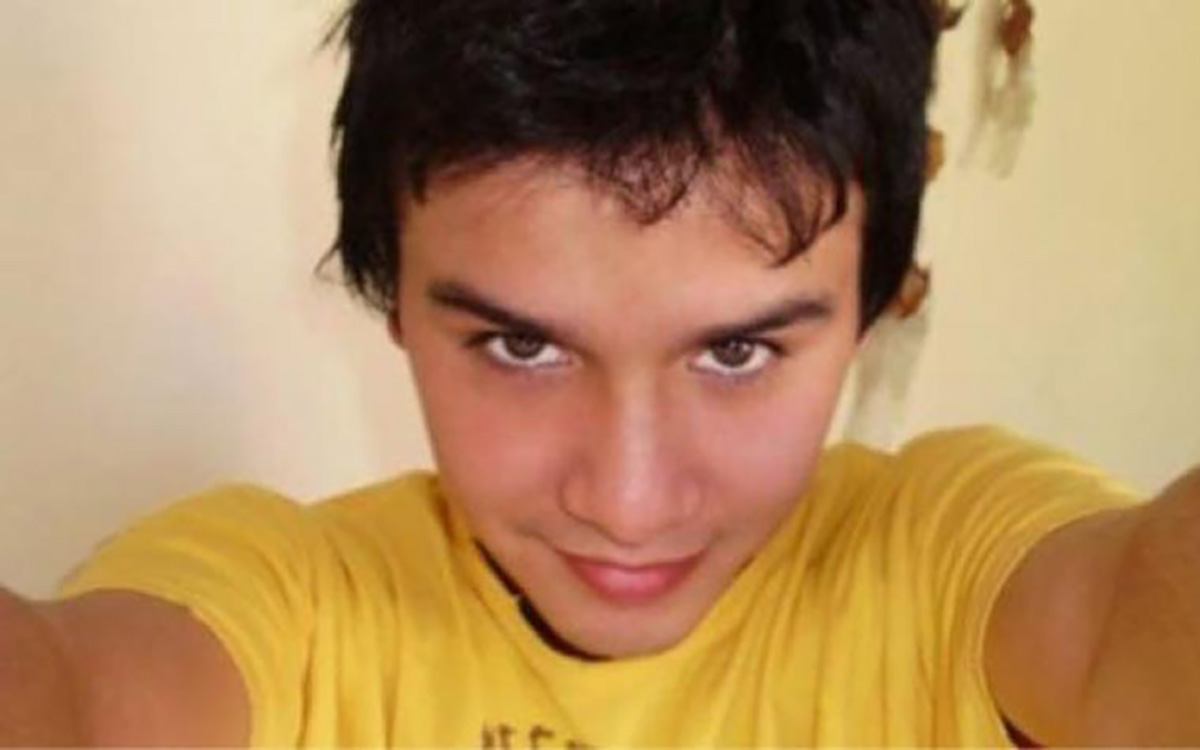
Chile’s Parole Commission on Tuesday rejected a request to allow one of the four men convicted of murdering Daniel Zamudio in 2012 to serve the remainder of his sentence outside of prison.
Raúl López Fuentes earlier this month asked the commission to release him on parole. Zamudio’s family and members of the Movement for Homosexual Integration and Liberation, a Chilean LGBTQ rights group, had gone to court to block the request.
Among the arguments put forward that influenced the commission’s decision is what Movilh categorized as his “high risk of recidivism, linked to the adherence of an antisocial behavior with a tendency to minimize his acts transgressing social norms.”
The commission pointed out that López has psychopathic traits because he is aware of the damage he did to Zamudio and his family.
“In addition, he maintains a high risk of violence, not being advisable to grant the benefit,” the report said.
Zamudio was a young Chilean man who became a symbol of the fight against homophobic violence in his country and around the world after López and three other young men with alleged ties to a neo-Nazi group beat him for several hours in Santiago’s San Borja Park on March 2, 2012. Zamudio succumbed to his injuries a few weeks later.
The attack sparked widespread outage in Chile and prompted a debate over homophobia in the country that highlighted the absence of an anti-discrimination law. Lawmakers in the months after Zamudio’s murder passed a law that bears Zamudio’s name.
López in 2013 received a 15-year prison sentence after he was convicted of killing Zamudio. Patricio Ahumada received a life sentence, while Alejandro Angulo Tapia is serving 15 years in prison. Fabían Mora Mora received a 7-year prison sentence.
Zamudio’s mother, Jacqueline Vera, exclusively told the Washington Blade after the commission rejected López’s request that “we as a family are calmer.”
“Even with my husband we were in a lot of pain at the beginning. It was like a blow of very strong emotions, so we tried to stay calm because we still had to solve the problem,” Vera said. “We had four days to solve it.”
López will have to serve the remaining three years of his sentence before his release.
“I will continue working to improve the Zamudio Law and so that this murderer does not leave prison because he is a danger to society, he does not represent repentance and people like this cannot be free,” she said. “For the same reason, we have to work so that hate crimes have life imprisonment and that is what we will concentrate on.”
South America
Man convicted of killing Daniel Zamudio in Chile seeks parole
Raúl López Fuentes in 2013 sentenced to 15 years in prison

One of the four men convicted of murdering a young gay man in the Chilean capital in 2012 is seeking parole.
Raúl López Fuentes in 2013 received a 15-year prison sentence after he was convicted of killing Daniel Zamudio.
Zamudio was a young Chilean man who became a symbol of the fight against homophobic violence in his country and around the world after López and three other young men with alleged ties to a neo-Nazi group beat him for several hours in Santiago’s San Borja Park on March 2, 2012. Zamudio succumbed to his injuries a few weeks later.
The attack sparked widespread outage in Chile and prompted a debate over homophobia in the country that highlighted the absence of an anti-discrimination law. Lawmakers in the months after Zamudio’s murder passed a law that bears Zamudio’s name.
Patricio Ahumada received a life sentence, while López and Alejandro Angulo Tapia are serving 15 years in prison. Fabían Mora Mora received a 7-year prison sentence.
López has asked the Seventh Santiago Guarantee Court to serve the last three years of his sentence on parole. Zamudio’s family and Jaime Silva, their lawyer who works with the Movement for Homosexual Integration and Liberation, oppose the request.
Movilh represented Zamudio’s family after his murder.
Zamudio’s mother, Jacqueline Vera, during an exclusive interview with the Washington Blade said López’s petition “provoked all the anguish, all the commotion of his time.”
“It was very cruel because in fact two days before we were at Daniel’s grave, where it was 12 years since his death and the beating,” said Vera. “He really does not deserve it.”
“We have gone through very difficult moments,” she added.
The mother, who later created a foundation to eradicate discrimination in Chile, was emphatic in indicating that she and her family “do not accept the release of this guy because he is a danger to society and a danger to ourselves.”
“At the last hearing where they were sentenced, they told us that we are going to remember them when they get out,” said Vera. “They threatened us with death. There is a video circulating on social networks where they were in front of me and they laughed and made fun of me. They told me that I remembered that I had three more children.”
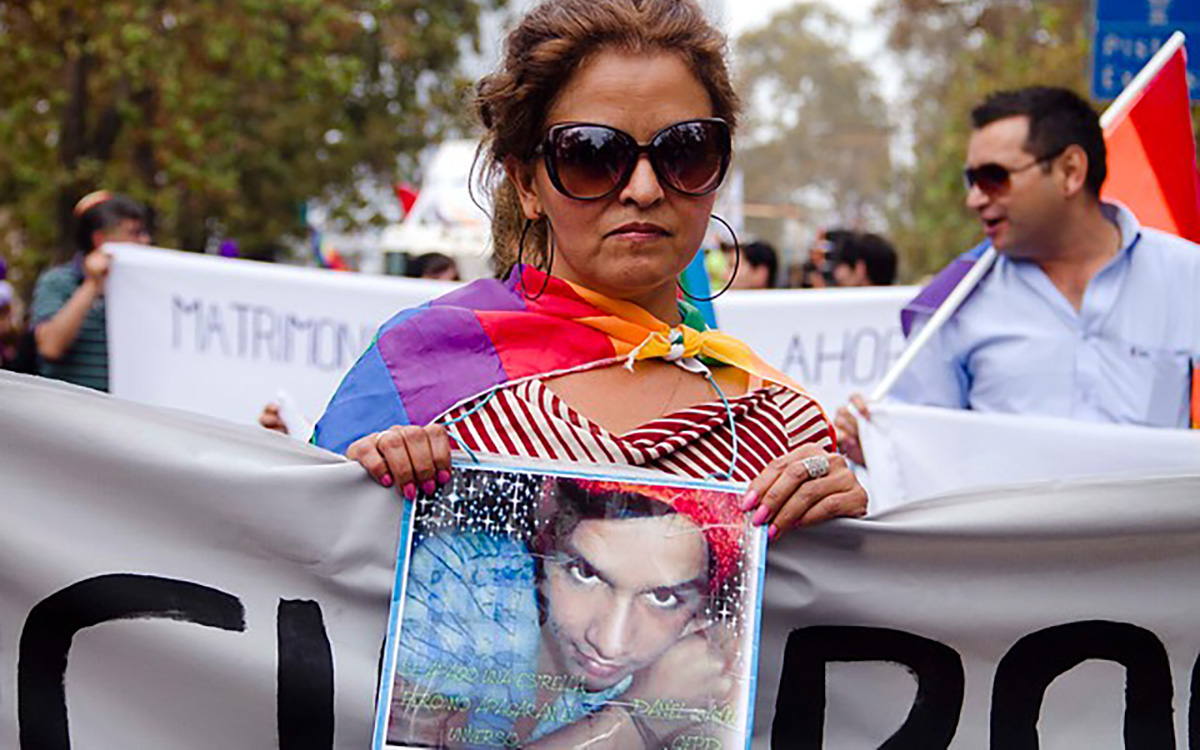
Regarding the possibility that the Chilean justice system will allow López to serve the remaining three years of his sentence on parole, Vera said “with the benefits here in Chile, which is like a revolving door where murderers come and go, it can happen.”
“In any case, I don’t pretend, I don’t accept and I don’t want (López) to get out, I don’t want (López) to get out there,” she said. “We are fighting for him not to get out there because I don’t want him to get out there. And for me it is not like that, they have to serve the sentence as it stands.”
LGBTQ Chileans have secured additional rights since the Zamudio Law took effect. These include marriage equality and protections for transgender people. Advocacy groups, however, maintain lawmakers should improve the Zamudio Law.
“We are advocating for it to be a firmer law, with more strength and more condemnation,” said Vera.
When asked by the Washington Blade about what she would like to see improved, she indicated “the law should be for all these criminals with life imprisonment.”
-

 State Department4 days ago
State Department4 days agoState Department releases annual human rights report
-

 District of Columbia2 days ago
District of Columbia2 days agoCatching up with the asexuals and aromantics of D.C.
-

 South America2 days ago
South America2 days agoArgentina government dismisses transgender public sector employees
-

 Politics5 days ago
Politics5 days agoSmithsonian staff concerned about future of LGBTQ programming amid GOP scrutiny



